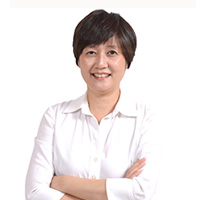[Serendipity] Listen to what COVID-19 patients have to say
By Kim Hoo-ranPublished : March 19, 2021 - 09:01

A year later, COVID-19 has left virtually no corner of the world unscathed and continues to rage on in many countries. In Korea, where the third wave of the spread has continued unabated since mid-November with daily totals of new cases reported in the 400s in recent days, there have been more than 97,000 confirmed cases and 1,688 deaths, according to government data as of Thursday.
In the early months of the pandemic, fear of the highly contagious and potentially lethal virus, for which there was no known cure, was clearly palpable. Streets stood deserted as people locked themselves in at home. When one did venture to go out, it was with great anxiety and trepidation. Wearing masks, washing hands frequently for 30 seconds each time and keeping distance were strictly followed, for the most part, as if one’s life depended on it.
When the smartphone screeched an alarm with information on the latest cases, including a nearly hour-by-hour account of the whereabouts of each confirmed patient, one pored over the message to see if there had been any crossing of paths.
After more than a year of this, we appear to have become somewhat desensitized to the pandemic. Call it pandemic fatigue or whatever else, we no longer pay as keen attention to the daily ups and downs in the number of cases or number of deaths as we had in the early months. Judging by the news of flagrant violations of the social distancing rules, we have become careless or, in some cases, lackadaisical.
Through unprecedented global cooperation, a number of vaccines have been developed that offer a way out of this protracted nightmare that has impacted all aspects of people’s lives. However, even that light at the end of the tunnel may grow dim soon if vaccinations are not completed as planned.
Questions about the safety of a vaccine has led to a temporary suspension of its use in a number of European countries. While the WHO has issued a statement saying that at this time it “considers the benefits of the AstraZeneca vaccine outweigh its risks and recommends that vaccinations continue,” reports of adverse side effects are no doubt fueling doubts among the public.
This setback could gravely thwart the global community’s attempts to return to normalcy -- albeit a new normal. By some estimates, it would require up to 80 percent of the population to be vaccinated to achieve herd immunity for COVID-19. And now with the emergence of variant strains of the virus, it is imperative that the vaccination program is completed before more variants of the virus prevail, rendering the current vaccines less effective. We are fighting against the clock, really.
We are now at a critical juncture in this unprecedented episode with the vaccination program underway. One of the lessons from last year is that we should listen to science, not politics. We all know the consequences of playing politics with the pandemic. Now, rumor mills are working overtime as people peddle conspiracy theories concerning the COVID-19 vaccines. Politicians only exacerbate the problem when they use COVID-19 and vaccines for political expediency.
Korea’s efforts to limit the spread of COVID-19 are seen largely as successful. Through extensive testing and contact tracing, the country’s health care system was spared the near meltdown experienced in countries where cases soared out of control. The public have so far largely been supportive of the government‘s efforts, even through various stages of social distancing rules that have greatly hurt businesses. Adopting mask wearing as part of the daily routine, everyone in Korean has contributed to the efforts to curb the spread of COVID-19.
“If anything kills over 10 million people in the next few decades, it’s most likely to be a highly infectious virus rather than a war,” said Bill Gates in 2015. Many others had also predicted similar events, pointing to mankind’s destruction of the environment as one of the causes. It is not as if we had not been forewarned.
People who have written about their experiences with COVID-19 tell us that the virus continues to impact their lives, whether through “long COVID,” a term used to describe protracted illness despite having technically recovered from COVID-19, or the stigma attached to having had the disease.
The current crisis will not really end until such time when patients can return to their pre-COVID-19 lives, according to one author who wrote about his experience of being treated in isolation for 50 days and the difficult process of his return to society.
Another writer who wrote extensively about his experience with “long COVID” urges greater transparency and communication about the disease. Yet another writer, a human rights specialist who was a patient and experienced firsthand various prejudices that he had only known in the abstract, highlights the need to uphold human rights even in pandemic times.
As we prepare for living in post-COVID-19 times, we would do well to pay heed to these voices.
By Kim Hoo-ran (khooran@heraldcorp.com)
Kim Hoo-ran is the culture desk editor at The Korea Herald. -Ed.






![[From the Scene] Monks, Buddhists hail return of remains of Buddhas](http://res.heraldm.com/phpwas/restmb_idxmake.php?idx=644&simg=/content/image/2024/04/19/20240419050617_0.jpg&u=20240419175937)





![[Graphic News] French bulldog most popular breed in US, Maltese most popular in Korea](http://res.heraldm.com/phpwas/restmb_idxmake.php?idx=644&simg=/content/image/2024/04/18/20240418050864_0.gif&u=)



![[From the Scene] Monks, Buddhists hail return of remains of Buddhas](http://res.heraldm.com/phpwas/restmb_idxmake.php?idx=652&simg=/content/image/2024/04/19/20240419050617_0.jpg&u=20240419175937)

![[KH Explains] Hyundai's full hybrid edge to pay off amid slow transition to pure EVs](http://res.heraldm.com/phpwas/restmb_idxmake.php?idx=652&simg=/content/image/2024/04/18/20240418050645_0.jpg&u=20240419100350)

![[Today’s K-pop] Illit drops debut single remix](http://res.heraldm.com/phpwas/restmb_idxmake.php?idx=642&simg=/content/image/2024/04/19/20240419050612_0.jpg&u=)